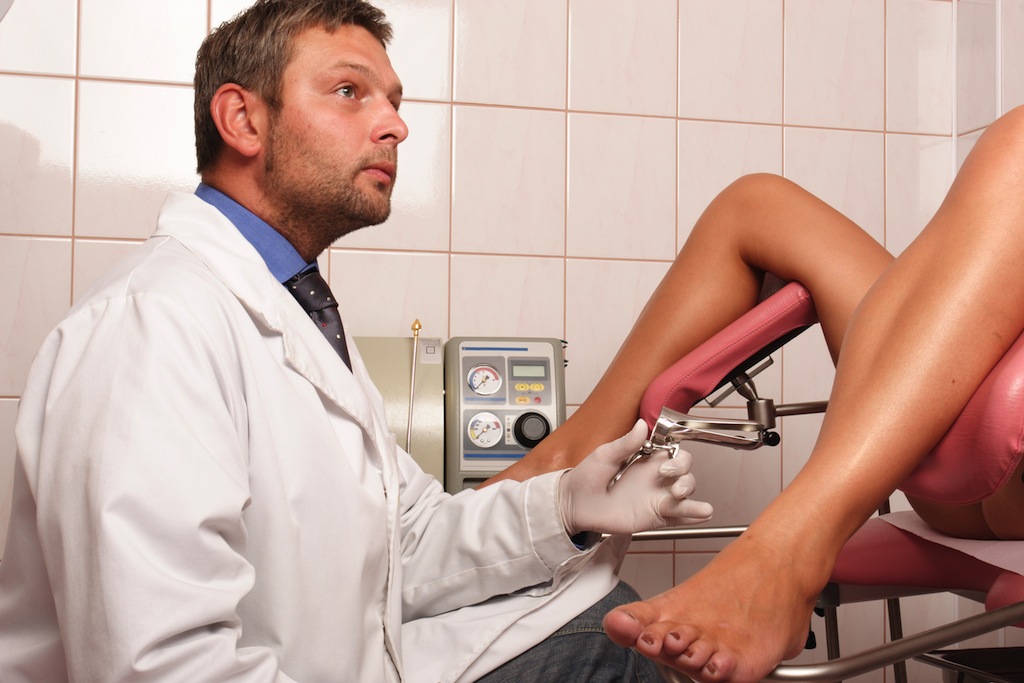
What every woman with pelvic organ prolapse needs, and every doctor ought to know
The term “prolapse” in this article refers to pelvic organ prolapse, which means that one or more of the pelvic organs has literally fallen out of its proper place and into the vagina. There are three types of pelvic organ prolapse: prolapsed bladder (cystocele), prolapsed rectum (rectocele), and prolapsed uterus.
The vast majority of doctors care deeply about their patients and truly desire to help them as much as possible. But when caring for women with prolapse, doctors virtually always fail to address their patients’ most important needs. It’s time we started asking our doctors for better care.
Here are five things doctors should be saying to every patient who has prolapse.
Your doctor should say…
1. You have prolapse.
Many women have mild prolapse, but are not aware of it. Prolapse is so common that to your doctor, mild prolapse can seem almost normal. If they find a prolapse during a pelvic exam, many doctors don’t mention it to the patient. If your doctor finds a mild prolapse and doesn’t tell you, he or she is probably making some or all of these assumptions:
• Your doctor assumes that if you’re not complaining about it, it’s not important.
Not true. If you’re like most women, you care about what’s going on in your vagina. Even if you’re not sexually active and you’re past childbearing, you care about what’s going on in your vagina. You want to know!
• Your doctor assumes that there’s no reason you need to know, because there’s nothing you can do about it except surgery, and your prolapse isn’t bad enough to do surgery yet.
Not true. There’s a lot you can do to help your prolapse other than surgery.
• Your doctor believes there’s nothing you can do to keep the prolapse from getting worse.
Not true. By avoiding lifestyle choices that put you at risk for prolapse (for example, certain types of exercise), you can give yourself the best odds for keeping the prolapse mild.
What you can do: If you don’t have prolapse (or you don’t have prolapse that you’re aware of), ask about it whenever you have a Pap smear or other pelvic exam. Don’t wait for your doctor to mention it.
Your doctor should say…
2. Let’s talk about how prolapse can affect your sex life.
If you have prolapse, worries about sex can be a major concern. But many doctors don’t talk with patients about sex. Women can worry themselves sick over questions like these:
“Is it OK to have intercourse? Is it possible? Or am I done having sex forever?”
“Can I get hurt during sex?”
“How can I make sex easier, and still enjoyable for me and my partner, in spite of my prolapse?”
What you can do: Ask your questions. Write them down before you see your doctor, so you don’t forget any. If your doctor isn’t comfortable answering your questions about your sexual health, find a doctor who is.
Your doctor should say…
3. I know this must be very frightening and upsetting for you.
For your doctor, it’s just another day at the office. For you, when you first discover that you have prolapse, it can feel like the end of the world.
You’re wondering whether your relationship will survive because you believe you’re no longer an adequate sex partner. You’re terrified that your prolapse will get worse, or that you’ll need surgery. Or you’re completely freaked out by what’s happened to your body, and you’re wondering if you will ever feel confident and attractive again.
A few words of reassurance and comfort from your doctor, acknowledging the emotional pain your prolapse is causing, can help you feel a little less alone, a little less scared.
What you can do: Ask for support. Say to your doctor, “I’m feeling really upset about this. Is there anything you can say that might help me feel better?” With this invitation, your doctor might acknowledge your feelings — or might start a discussion about what you’re most concerned about, so you can get more information.
And whether or not you feel emotionally supported by your doctor, it’s important to get ongoing support from other people in your life. Many women keep prolapse a secret, but talking with your family and your women friends about your prolapse can help.
Your doctor should say…
4. Here’s how you can help keep your mild prolapse from getting worse.
If you have prolapse, “Is this going to get worse?” is probably one of the biggest questions you have. If there’s anything you can do to keep a small prolapse from turning into a big prolapse, you’ll do it! Right?
Why don’t doctors tell women what to do to keep a prolapse from getting worse? Because they don’t know there’s anything you can do. Most doctors are misinformed, and will tell you there’s nothing you can do, because that’s what they believe to be true.
What you can do: Ask. Your doctor probably won’t have much information to offer, but ask anyway and see what you can find out. To get tips about how to keep a small prolapse small, check out my webinar.
Your doctor should say…
5. I want to help you avoid surgery, and here’s how we can work together to do that.
When I talk with women who suffer with prolapse, I hear the same story over and over again: “My doctor recommended surgery, and never even said there was anything else I could do.”
This is a problem. Why? Prolapse repair surgery is dangerous, it’s expensive, and it fails up to 50% of the time.
Why do doctors typically recommend nothing but surgery, ignoring safer and more affordable alternatives that can help? Here are some reasons:
• The doctor believes that surgery really is the only treatment for prolapse.
OB/GYNs are trained as surgeons. For those OB/GYNs who go on to become urogynecologists (the doctors who specialize in treating prolapse), nearly all of the specialized urogynecology training is in surgery. Complete education about other treatments is not part of standard medical training for these doctors.
• The doctor could help you with a pessary, but it takes a lot of time and doesn’t make any money.
A pessary is a silicone device you can wear at the top of the vagina to hold prolapsed organs in place. When it’s fitted properly and working well, it can relieve prolapse symptoms fully with very little health risk. (And if a problem develops, you just take the pessary out — unlike surgery, which is permanent.) It’s safer than surgery, and costs a tiny fraction of what surgery costs. However, fitting and maintaining the pessary can take a great deal of office time, with very little financial reimbursement for the doctor. I don’t know how much it costs to run a doctor’s office, but I would guess that pessary reimbursement barely covers the costs of the time spent with the patient. (Note: doctors should get paid more for this! More on that below.)
• The doctor is not familiar with alternative treatments, and doesn’t trust them.
Doctors are trained to rely on drugs, surgery, and not much else. Most have no experience with alternative prolapse treatments such as Arvigo massage or acupuncture. They’ve heard of kegel exercises, but because nearly all doctors and patients have bad kegel information and don’t know how to do kegels correctly, they wrongly believe that kegels can’t help.
• Surgery fits into our health care system. Teaching and ongoing support don’t fit.
In our health care system, doctors get paid for doing things to their patients, not for talking with them. Your doctor can earn thousands of dollars by doing your surgery, but if she sits down with you for an hour to talk with you about how your lifestyle can affect your prolapse, or to help you create a plan for alternative prolapse treatments, or teach you how to do kegels correctly, it can literally cost your doctor money to spend that time with you. Doctors train hard, and they work hard. They deserve to be paid well. But they should be paid well for providing cost-effective care that helps prevent problems and keeps patients safe — not just for using needles, drugs, and knives.
What you can do: You have the choice to say no to surgery unless you have truly exhausted all possible alternatives. You can always schedule the surgery later, but you can never go back and undo surgery. This short article gives you my suggestions about what to do if your doctor recommends surgery.
Most importantly, remember that whatever treatments, information, or support your doctor provides (or fails to provide), the responsibility for your health choices belongs to you. Get informed about your options. Don’t wait for your doctor to take the lead; prepare for your appointments and ask for what you need. If your doctor can’t give you what you need, keep looking until you get it. You are in charge of taking care of you!

